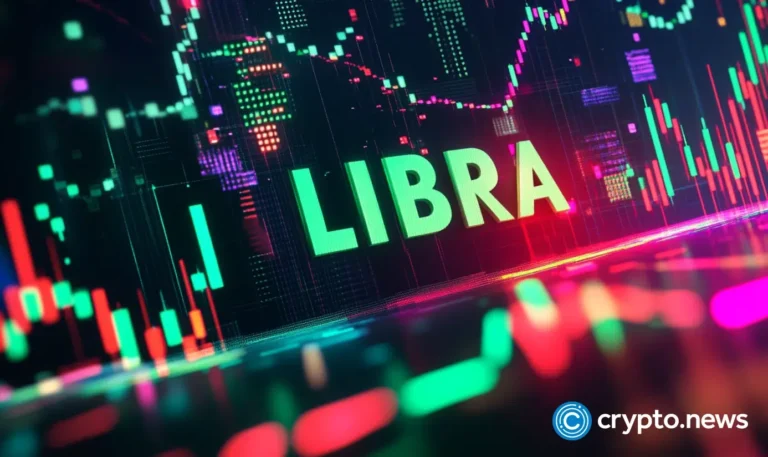
On Nov. 11, an Argentine court froze Libra tokens held by Hayden Davis—the central figure in a Libra scandal—and two suspected intermediaries, citing suspicions the assets were used to bribe public officials. The move follows Circle’s earlier freeze of USDC linked to the Libra team.
In recent years, crypto issuers have occasionally frozen tokens linked to flagged addresses—typically in response to exchange hacks or scams aimed at stopping bad actors. Yet the fact that issuers can unilaterally lock holders’ funds runs counter to one of crypto’s core principles: “not your keys, not your coins.” The question now is whether this power represents a justified safeguard for public safety—or a ticking time bomb beneath the reserves of individuals and institutions alike.
Summary
- Hayden Davis, a person behind the Libra token promoted by Argentine President Javier Milei, had his Libra tokens frozen through the Argentine court.
- Davis is still not convicted. Allegedly, he was involved in sniping schemes with YZY and Melania tokens. The former happened after the scandal with Milei.
- While governments and token issuers usually freeze the tokens of bad actors, the very existence of such a mechanism casts a shadow on cryptocurrency principles.
- The new report by Bybit analysts claims 16 blockchains already have freezing mechanisms, and 19 more will soon be able to add them too.
Hayden Davis’ tokens were frozen
Davis, a twenty-something crypto entrepreneur, proved persuasive enough to reportedly enlist Argentine President Javier Milei, U.S. First Lady Melania Trump, and even Kanye West in promotional efforts tied to his memecoins — Libra, Melania, and YZY. While Davis now faces legal troubles, none of his ventures have yet led to a conviction. For retail investors, however, his projects have already caused hundreds of millions in losses.
Launched on February 14 and promoted by Milei, the Libra token had no real use case — a classic memecoin. Its price collapsed soon after debut, erasing investor funds. Davis, through his company Kelsier Ventures, reportedly earned around $100 million from Libra — roughly the same amount he made from the Melania token. Total investor losses across the schemes are estimated at $250 million.
Davis’s profits came through “crypto sniping,” a high-speed trading strategy that uses automation to capitalize on new token launches or sharp price movements tied to exchange listings and liquidity events. His familiarity with upcoming projects allowed Kelsier Ventures to act seconds before public announcements, securing massive early gains.
In the Libra case, Davis allegedly used a “one-sided liquidity” technique to conceal sell orders while leaving buy data visible. Investors saw green candles and apparent momentum, unaware that large-scale dumping was underway. The same maneuver was reportedly used in March to unload Melania tokens.
In May, a U.S. judge ordered the freezing of $57 million in USDC linked to the Libra launch. Circle, the stablecoin’s issuer, complied and froze the assets. Yet by August 20, the tokens were reportedly unfrozen, allowing Davis and his associates to regain access to the funds.
Reports don’t specify exactly how the Libra tokens are being frozen. Libra is built on the Solana blockchain, which includes a freeze account feature that temporarily suspends token issuance. Circle likely used this mechanism to freeze USDC on the Solana addresses associated with the Libra launch. However, there is no evidence that it was used in the Libra case. According to Chainalysis, the government can “freeze” someone’s assets simply by sending them to the government-controlled wallet.
Blockchain can freeze tokens
While it’s not clear how Libra tokens are frozen, there is no secret that centralized stablecoin issuers can freeze user funds. More than that, the GENIUS Act, signed by President Trump into law on July 18, requires the U.S. and foreign stablecoin issuers to freeze funds if appropriate. The requirement stems from the fact that stablecoin issuers in the U.S. are treated as financial institutions; thus, they must comply with all applicable laws.
However, even before the passage of the GENUS Act, stablecoin issuers were freezing funds during hacking incidents or preventing scam operations, and Circle’s freezing of Libra’s USDC is not an isolated case. For instance, the Cetus Protocol hack on May 22, 2025, that drained $200 million in crypto, led the Sui Foundation to freeze $162 million in stolen tokens.
While the move saved most funds, it raised concerns about the inherent risks of such a concentration of control. It prompted Bybit’s Lazarus Security Lab to research the capabilities of leading blockchains to freeze user assets. The report titled “Examine The Impact of Fund Freezing Ability in Blockchain” was released on Nov. 12, 2025.
Researchers analyzed the code of 166 blockchains and found that 16 blockchains can freeze holders’ funds without their consent. The report calls it a reintroduction of central authority over funds, which “runs counter to the core principle of decentralization.”
According to Lazarus Security Lab, 16 of the analyzed blockchains already have mechanisms to freeze users’ assets unilaterally. Nineteen more blockchains could support this option in the future. Most of these blockchains use hardcoded freezing (public blacklist), config file-based freezing (private blacklist), and on-chain smart contract freezing. The list of blockchains that already have (and sometimes use) such mechanisms includes BNB Chain, Sui, VeChain, Cosmos, and 12 others.
The report aims to shed light on existing asset freeze mechanisms so token holders can assess risks adequately. Sometimes, people claim their crypto funds are frozen without an apparent reason. Given all that, some risk management is a must.



